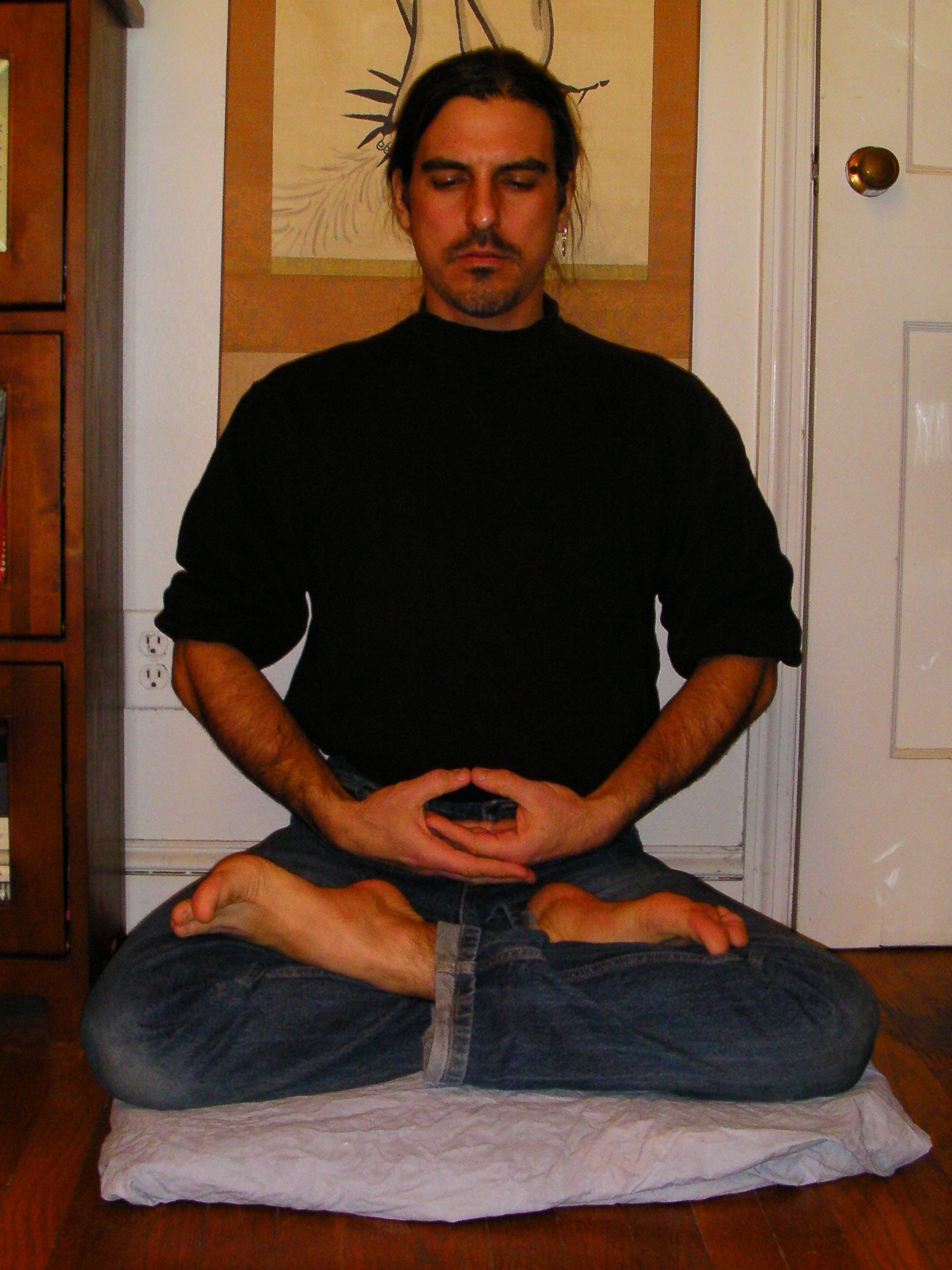
Zen teacher Brad Warner recently tweeted, "Thinking your meditation is going wrong because you have distracting thoughts is like thinking your workout is going wrong because you sweat". As someone whose meditation often takes the form of sweaty martial arts workouts, I found this an interesting metaphor.
(And yes, grammar nerds, though it uses the word "like" it is a metaphor, for a simile is a type of metaphor.)
When we exercise our bodies, sweat is the normal result. It's an indicator that we're putting in effort. If we're not even working up a sweat, we're not working hard. (Unless it's cold out or something.) And it's worth noting that a workout that might have left us sweaty last year might be effortless now, so we have to step up our efforts over time as we become more fit. Maybe a more athletic person could do my workout without getting sweaty, but that just means they should be working harder.
So this metaphor seems to suggest that if we don't find distracting thoughts when we sit, we're not trying hard enough. How could this be? Isn't the whole goal to eliminate distracting thoughts?
In our culture meditation is seen as something one undertakes in order to achieve a certain goal. We are very goal-oriented; we exercise in order to lose weight or to bring our cholesterol number down or relieve stress. We study martial arts to be able to defend ourselves or to get in better shape. We buy a house in a certain neighborhood because it's a good investment, we date someone with the goal of starting a family, and so on. Now there's nothing wrong with setting a goal and planning how to get there. But often that has us so focused on that distant goal that we don't see where we are.
And so it is with meditation. We start to meditate in quest of some goal, to have a quieter mind or inner peace or some such idea. In recent years it's become common for business people to learn meditation in order to be better focused on their jobs and better able to raise corporate profits. (This is not a new American sin, by the way; Japanese companies have sent employees off for Zen training for a while.)
Then we sit, and all this stuff comes up. We find all of these distracting inner voices. We don't seem to be getting closer to that goal of a quieter, clearer mind. In fact it seem to be getting farther away! We must be Doing It Wrong!
And that's ironic, because meditation should teach us to be in the here-and-now. Instead we're so focused on some there-and-then goal that we think something must be wrong when the truth of our mind in the present moment intrudes.
It's a funny thing about those inner voices. Many voices together make an incomprehensible noise. It's only when things become relatively more quiet, when only one at a time is talking, that we can clearly make out what's being said.
The untrained mind (and let's be honest, even the trained mind at times!) is a susurrus of voices, commenting and offering advice, all speaking at once and thus incomprehensible. If you can clearly make out one voice, it means the noise is less! So when you're sitting and you find you're thinking about the frozen pizza you're going to have for dinner later...as counter-intuitive as it may be, if that's a single clear thought in your brain, that can actually be a sign of progress.
Of course obsession, where only one voice ever speaks clearly, is a pathology. So if it's only "Pizza...pizza...pizza..." all the time, that's not so healthy. But if it is, one voice at a time, "Pizza...that computer bug at work...that pretty girl you hope will text you back...need to write something for the blog...gee, sitting like this is uncomfortable...hey, new episode of The Walking Dead tonight....", if instead of incomprehensible noise only one voice at a time is speaking, then there is the possibility of silence in between. The cloud cover has become broken enough for clouds to have a distinct shape. And that means the moon -- always there, whether you see it or not -- can now poke through from time to time.